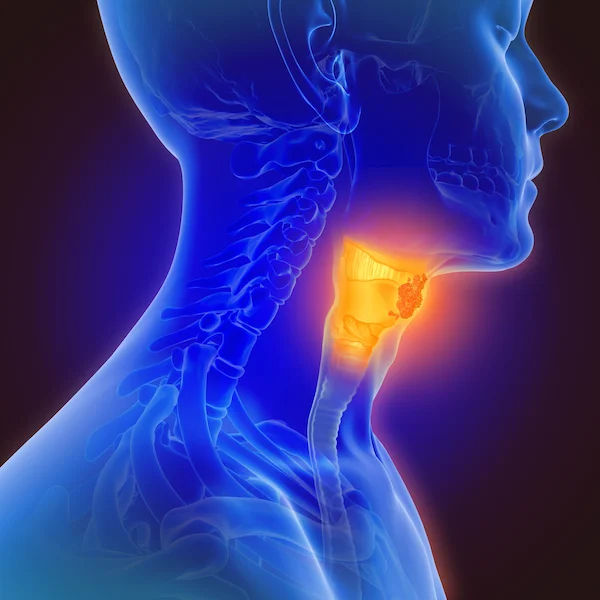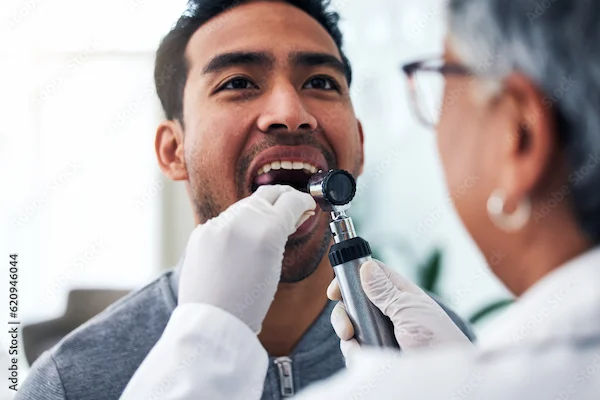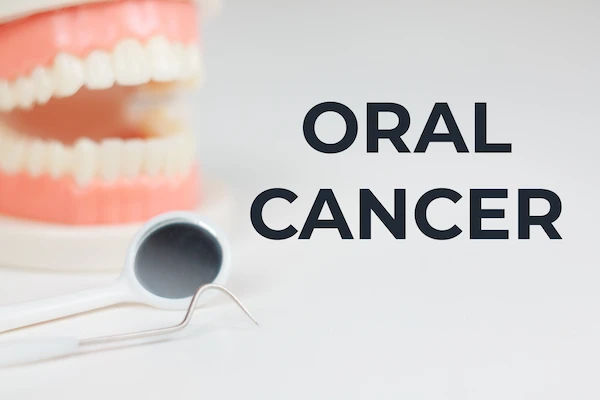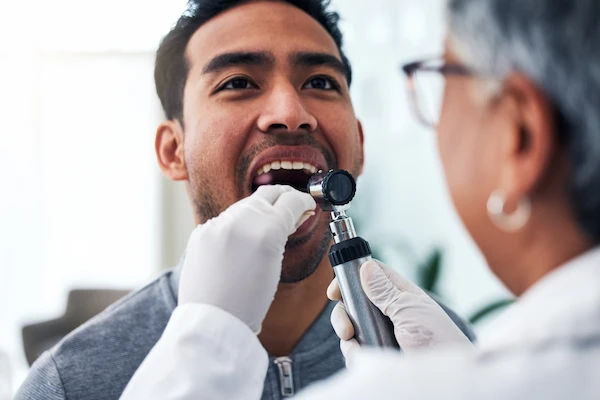Mouth Cancer Treatment Options and Medicines
Know about the cancer treatment options and medicines, what, how and when of mouth cancer, treatment options, side effects, management of side effects and medications.

Written by Dr. Dhankecha Mayank Dineshbhai
Reviewed by Dr. Shaik Abdul Kalam MD (Physician)
Last updated on 7th Aug, 2025

Introduction
Facing a diagnosis of mouth cancer can be overwhelming, but understanding your treatment options can help you make informed decisions. Mouth cancer, also known as oral cancer, affects areas like the lips, tongue, cheeks, gums, and throat. Early detection and treatment significantly improve outcomes, so knowing the available treatments and medicines is crucial.
This article explains the different treatment options, medications, and lifestyle changes that can support recovery. If you or a loved one is dealing with mouth cancer, remember that you’re not alone—medical advancements and supportive care can help you through this journey.
Understanding Mouth Cancer
Mouth cancer occurs when abnormal cells grow uncontrollably in the oral cavity. Common symptoms include:
- Persistent mouth ulcers or sores that don’t heal
- Red or white patches inside the mouth
- Unexplained pain or numbness in the mouth
- Difficulty swallowing or chewing
- A lump or thickening in the cheek
- Changes in voice or speech
If you notice any of these symptoms, consult a doctor immediately. Early diagnosis improves treatment success.
Consult Top oncology specialist for advice
Treatment Options for Mouth Cancer
The treatment plan depends on the cancer’s stage, location, and overall health. Common treatment options include:
1. Surgery
Surgery is often the first step to remove the tumor and nearby affected tissues. Types of surgeries include:
- Tumor Removal – Small tumors are cut out with minimal impact on surrounding tissues.
- Glossectomy – Partial or complete removal of the tongue if cancer has spread.
- Mandibulectomy – Removal of part or all of the jawbone if cancer has invaded it.
- Neck Dissection – Removal of lymph nodes if cancer has spread.
Recovery Tips After Surgery:
- Follow a soft or liquid diet as advised by your doctor.
- Maintain oral hygiene with gentle rinses.
- Attend speech or swallowing therapy if needed.
2. Radiation Therapy
Radiation uses high-energy beams to kill cancer cells. It can be used:
- After surgery to destroy remaining cancer cells.
- As the primary treatment if surgery isn’t an option.
- To relieve symptoms in advanced cases.
Side Effects & Management:
- Dry mouth – Drink plenty of water, use saliva substitutes.
- Mouth sores – Avoid spicy foods, use prescribed mouthwashes.
- Fatigue – Rest well and eat nutritious meals.
3. Chemotherapy
Chemotherapy uses drugs to kill cancer cells or stop their growth. It is often combined with radiation (chemoradiation) for better results.
Common Chemo Drugs for Mouth Cancer:
- Cisplatin
- 5-Fluorouracil (5-FU)
- Carboplatin
- Paclitaxel
Managing Chemo Side Effects:
Side effect management includes:
- Nausea – Take anti-nausea medications as prescribed.
- Weak immunity – Avoid crowded places, maintain hygiene.
- Hair loss – Temporary; consider wigs or head coverings.
4. Targeted Therapy
This treatment targets specific genes or proteins in cancer cells, minimizing damage to healthy cells. Cetuximab (Erbitux) is a common drug used for advanced mouth cancer.
5. Immunotherapy
Immunotherapy boosts the body’s immune system to fight cancer. Drugs like Pembrolizumab (Keytruda) and Nivolumab (Opdivo) are used for advanced cases.
Medicines Used in Mouth Cancer Treatment
Apart from chemotherapy and targeted drugs, other medications help manage symptoms and side effects:
- Pain Relievers – For discomfort (e.g., acetaminophen, opioids if needed).
- Mouthwashes – Medicated rinses to prevent infections.
- Nutritional Supplements – If eating is difficult, liquid nutrition may be recommended.
Lifestyle and Dietary Changes for Better Recovery
A healthy lifestyle supports treatment and recovery:
- Quit Smoking & Alcohol – Both increase cancer risk and slow healing.
- Eat a Soft, Nutrient-Rich Diet – Include smoothies, soups, and protein shakes.
- Stay Hydrated – Helps with dry mouth and digestion.
- Oral Hygiene – Brush gently, use alcohol-free mouthwash.
- Regular Follow-ups – Monitor recovery and detect any recurrence early.
When to Seek Help?
If you experience:
- New lumps or sores in the mouth
- Difficulty swallowing or speaking
- Unexplained weight loss
- Persistent pain
Consult a doctor immediately. Early intervention saves lives.
Final Thoughts
Mouth cancer treatment has come a long way, and many patients recover well with timely care. Staying informed, following medical advice, and maintaining a positive outlook can make a big difference. You’re not alone in this fight—reach out to healthcare professionals for support.
Consult Top oncology specialist for advice
Consult Top oncology specialist for advice

Dr Devashish Tripathi
Radiation Specialist Oncologist
20 Years • MBBS, PLAB, MRCP (UK)- General Medicine, FRCR (Oncology), Certificate of Completion of Training (CCT)- Clinical Oncology
Delhi
Apollo Hospitals Indraprastha, Delhi

Dr. Gopal Kumar
Head, Neck and Thyroid Cancer Surgeon
15 Years • MBBS, MS , FARHNS ( Seoul, South Korea ), FGOLF ( MSKCC, New York )
Delhi
Apollo Hospitals Indraprastha, Delhi
(25+ Patients)

Dr Sunita Samleti
Oncologist
18 Years • M.D. (Pathology)- TN Medical College, Mumbai University, Mumbai, Mar 2005 M.B.B.S. Grant Medical College, Mumbai University, Mumbai, Oct 1999
Chinagadila
Apollo Hospitals Health City Unit, Chinagadila
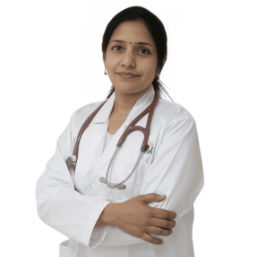
Dr. Priyanka Srivastava
Medical Oncologist
15 Years • MBBS, MD, DrNB Medical Oncology, Fellowship (Medical Oncology) , PMCC, UOT Canada.
Ahmedabad
Apollo Hospitals Gandhinagar, Ahmedabad
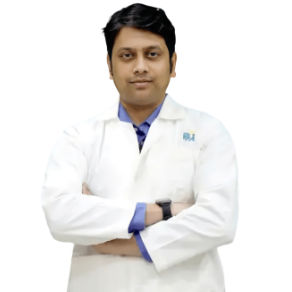
Dr. Prashant Chandra Das
Surgical Oncologist
15 Years • MBBS (MKCG Medical college) MCh (Surgical Oncology, Kidwai memorial institute of Oncology, Bangalore) MS (General Surgery, BHU Varanasi) Fellowship in Minimal Access Surgery ( FMAS). ESSO Course On Minimally Invasive Esophagectomy & Gastrectomy (UMC, Utrecht, Netherlands). Trained in Robotic and Laparoscopic Cancer Surgery.
Bhubaneswar
Apollo Hospitals Old Sainik School Road, Bhubaneswar
(25+ Patients)
Consult Top oncology specialist for advice

Dr Devashish Tripathi
Radiation Specialist Oncologist
20 Years • MBBS, PLAB, MRCP (UK)- General Medicine, FRCR (Oncology), Certificate of Completion of Training (CCT)- Clinical Oncology
Delhi
Apollo Hospitals Indraprastha, Delhi

Dr. Gopal Kumar
Head, Neck and Thyroid Cancer Surgeon
15 Years • MBBS, MS , FARHNS ( Seoul, South Korea ), FGOLF ( MSKCC, New York )
Delhi
Apollo Hospitals Indraprastha, Delhi
(25+ Patients)

Dr Sunita Samleti
Oncologist
18 Years • M.D. (Pathology)- TN Medical College, Mumbai University, Mumbai, Mar 2005 M.B.B.S. Grant Medical College, Mumbai University, Mumbai, Oct 1999
Chinagadila
Apollo Hospitals Health City Unit, Chinagadila

Dr. Priyanka Srivastava
Medical Oncologist
15 Years • MBBS, MD, DrNB Medical Oncology, Fellowship (Medical Oncology) , PMCC, UOT Canada.
Ahmedabad
Apollo Hospitals Gandhinagar, Ahmedabad

Dr. Prashant Chandra Das
Surgical Oncologist
15 Years • MBBS (MKCG Medical college) MCh (Surgical Oncology, Kidwai memorial institute of Oncology, Bangalore) MS (General Surgery, BHU Varanasi) Fellowship in Minimal Access Surgery ( FMAS). ESSO Course On Minimally Invasive Esophagectomy & Gastrectomy (UMC, Utrecht, Netherlands). Trained in Robotic and Laparoscopic Cancer Surgery.
Bhubaneswar
Apollo Hospitals Old Sainik School Road, Bhubaneswar
(25+ Patients)
